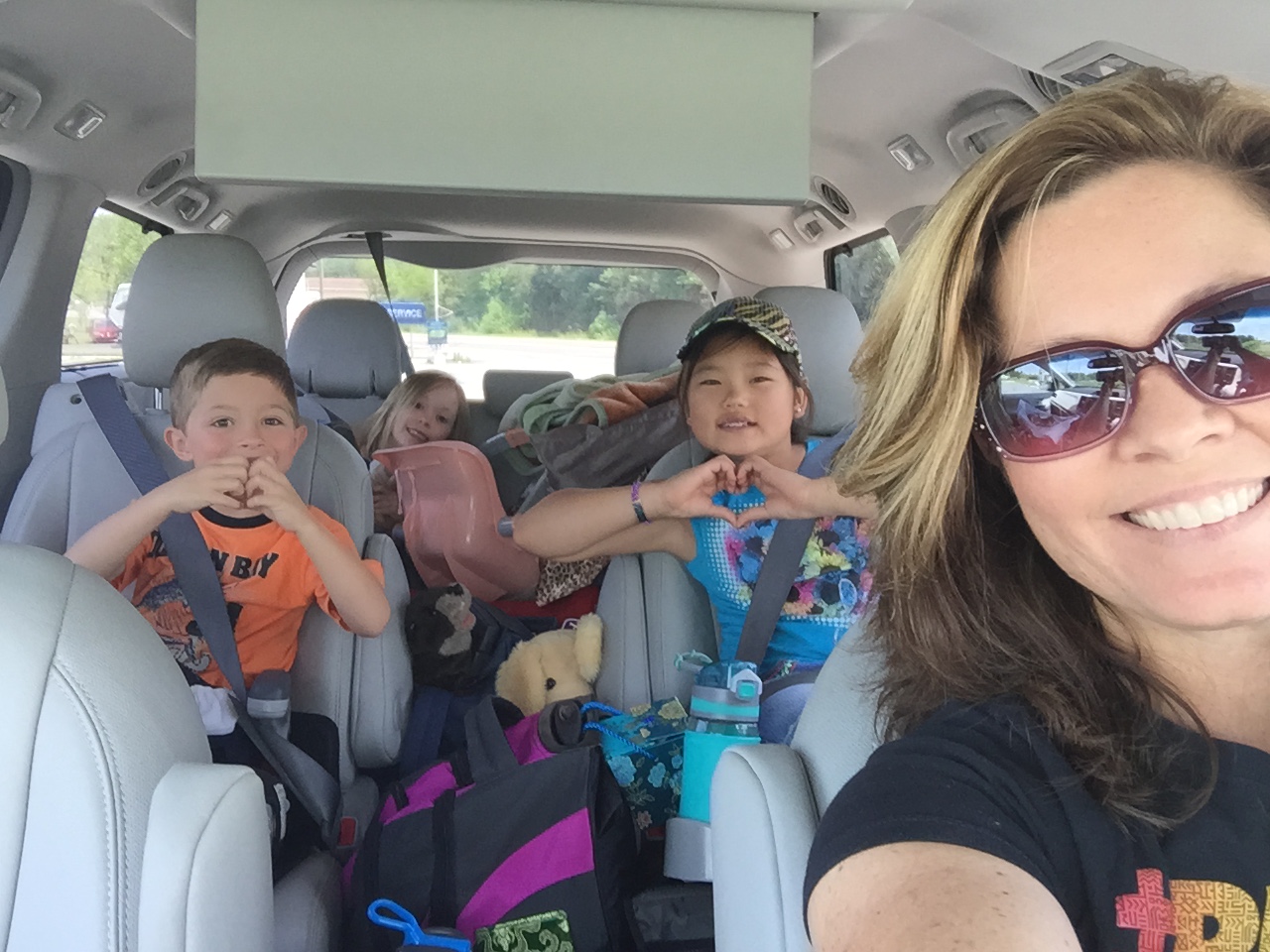Lela is my little writer. She is constantly coming to us with a new “book.” She recently finished a book called “The Beautiful Oops” and I was so captivated by the idea, I asked her where she came up with it, and she said it was her version of a real book they read in art class. She had taken some of the ideas from the “real” book and then added a few of her own. (We haven’t discussed plagiarism yet!)
We immediately ordered the original book.
The Beautiful Oops . . . a simple idea, but such a profound concept. One thing we hope to teach our kids is how to adapt when things don’t work out the way we plan. I think it’s a really important life skill to be able to “adjust” and to find something to be grateful for (or the valuable lessons, good or bad) in all situations.
It’s just a board book with this very simple idea of getting creative when we make a mistake. For example, “A torn piece of paper, is just the beginning!”
I doubt the author wrote the book with any spiritual intentions, but I found this to be a very spiritual book! Sometimes it’s hard to take profound concepts and make them simple and maybe that’s why I love and appreciate children’s books and movies. Anyone can spout a bunch of cerebral information, but it takes skill to make that information relevant to everyone. “The definition of genius is taking the complex and making it simple.” Albert Einstein
I felt like her book was a real life example of Romans 8:28, “For we know that all things work together for good for those who love God and are called according to his purpose.”
And I find the concept freeing because so many of us hold back because we fear making mistakes. We develop “opportunity aversion” because we are afraid to fail. We get stuck because we are so afraid we can’t control the outcome.
If we can really learn to trust God with story of our lives — even when we falter and fail, even when we (with the best of intentions) make mistakes, even when unexpected things come our way – then we can still live with confidence and joy.
And while the book focuses on artistic mistakes (a drip, a tear in the paper, a stain, etc), I think the concept can be applied to a wide range of circumstances . . mistakes, failures, things within our control and outside of our control, unforeseen circumstances that might not be the fault of anyone (weather, mechanical problems, sickness, etc.).
I could give you examples that happen every day, but we had an experience shortly after we ordered the book and I think it helped the kids “connect the dots” of why I love the concept so much.
When my mother-in-law was here visiting on Columbus day, we loaded everyone into the van and headed up to Vermont to visit our daughter, Casey, and her family. We stopped at the beautiful French King Bridge about halfway through our trip, to take in the fall scenery, but when we got back in the van, it wouldn’t start. Turned out that we had a dead battery. We were disappointed, especially since our day trip was ruined and we didn’t get to see our family. But we also counted our blessings. . . we broke down in a good spot and at a good time, we had AAA to rescue us, it was a dead battery and not something more serious, etc. And to our surprise, while we were waiting for someone to come and jump-start the van, a fundraiser was setting up in the adjacent parking lot, so the kids got to pick out pumpkins.
The following morning, the van was in the shop awaiting a new battery, so we had to walk Carlie to school. It was a brisk fall morning, bright sun, beautiful colors . . . and that walk to school turned out to be such a blessing. There was something so restorative about walking together in the early morning through the woods.
Lela found a leaf with dew on it that looked like sparkles and she was so enthralled (we tried to take a picture but it’s hard to see the sparkles).
And we talked about how the van breaking down is like the “beautiful oops” – it was something unexpected, but still, God made something beautiful out of it. We wouldn’t have walked to school together and found the sparkly leaf, we wouldn’t have our lovely fundraiser pumpkins, we wouldn’t have experienced the beauty of a fall walk in the woods, if the van had not broken down.
I wasn’t happy the van broke down; I wasn’t happy that our original plan didn’t work out and we didn’t get to see my Grandsons. BUT I couldn’t change any of that, so there was no sense dwelling on it. What I could do was appreciate the beauty and blessings that somehow emerged from those negative circumstances . . . the beautiful oops.
That’s a small example, but this is a phenomenon I’ve seen throughout my life, in big and small ways.
The most blatant example, and something I’ve always been hesitant to talk about, is my divorce. The kind of beautiful oops you won’t find in a children’s book, but the sort of thing that comes to mind, when I think of how God helps us navigate the unexpected twists and turns of life.
I married young (22, graduated a half-year early from Chapel Hill in December and married in March – I’m not sure why I was in such a hurry) to a great guy and fully expected “happily ever after.” But my expectations did not match reality, and within a few years, I had some tough decisions to make. He didn’t do anything wrong; we just never should have married in the first place. I was too young and naïve to understand how much I was going to change in my 20’s. Within four years, we were headed for divorce, and luckily, it was fairly amicable and there were no kids involved, but there was still a lot of hurt and pain and confusion . . . for us, for our families, for our church family, and all the people who loved us. I don’t care how amicable it is, divorce sucks.
Although I knew deep down that I couldn’t stay, I somehow expected God to “punish” me for leaving. My parents didn’t follow that sort of reasoning/theology, but almost everyone else around me believed that, because divorce is a sin, God’s judgment would be harsh. Although there were negative consequences, God somehow took my mistake and offered me grace and second chance.
I don’t think God “blessed” or honored my divorce, but I think He loved me and forgave me. I think He saw the brokenness of my heart and the sincerity of my decision and helped me to grow and mature through that experience.
Although I regretted the hurt that the divorce caused, I’m so grateful for the lessons I learned in the course of that relationship. Without the experience of my first marriage, I never would have appreciated or been open to the kind of love that I found in Keith. These are the strange and mysterious “felix culpa” (“happy fault”), or “luminous darkness” moments. I don’t think my divorce was “God’s will,” but I wouldn’t be who I am, I wouldn’t have met Keith or known true love and companionship, without that terrible and beautiful mistake.
Glennon Doyle Melton says that life is beautiful and brutal at the same time – she calls it “brutiful” and I think this is a perfect description.
We never want to rejoice in our sin or deliberately make mistakes, but we are flawed humans, and when those sinful moments, unrealistic expectations, and/or mistakes happen, we can rejoice in God, who can take all our faults and failures and somehow work them for our good. He might not take away the consequences, but He will teach us and grow us. You might have to let go of your expectations and the perfect dream you have for your life and allow God to make something completely new . . . and it can be beautiful. Doesn’t mean that it won’t hurt, that we won’t grieve, but we can still trust God to help us find beauty in this “brutiful” life.
The beautiful oops.
And if that seems too simple to accept, then maybe Richard Rohr’s words (from Yes, And) will carry more weight than a children’s board book:
“We grow spiritually much more by doing it wrong than by doing it right. That might just be the central message of how spiritual growth happens; yet nothing in us wants to believe it, and those who deem themselves morally successful are often the last to learn it.
If there is such a thing as human perfection, it seems to emerge precisely from how we handle the imperfection that is everywhere, especially our own. . . . the demand for the perfect is often the greatest enemy of the good.”
Because of this simple yet profound concept (the beautiful oops), we are free to live with boldness and intention, love recklessly, give lavishly, have fearless faith, and throw ourselves confidently at the mercy of a God who . . .
- makes all things new (2nd Corinthians 5:17, Rev. 21:5)
- makes miracles of the mundane (John 6:1-13)
- turns mourning into joyful dancing (Psalm 30:11)
- uses the unexpected, the irrational (1st Corinthians 1:27-28, Luke 10:21)
- can do “immeasurably more that all we ask or imagine” (Ephesians 3:20)
- brings life from death (John 11:25)
Whew (and that’s the short list)! If that doesn’t make you want to shout, I don’t know what will.
Thanks be to God!
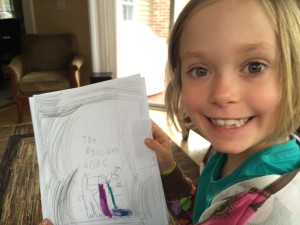
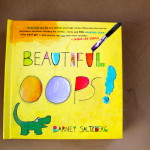
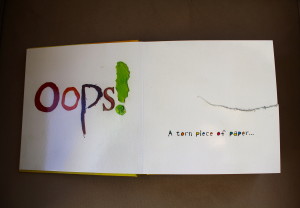
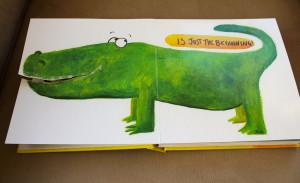


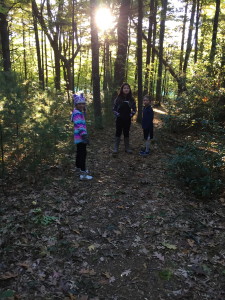


 Follow
Follow share via email
share via email